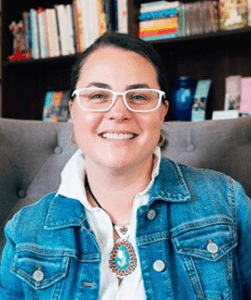If there’s one thing we can all agree on, it’s that times are hard. In modern society, we are triggered on a daily basis by various stressors: the news, driving to work, a call from the principal’s office, worrying about money, and so many more. There are endless life events—big and small—that can activate our body’s stress and anxiety responses.
Whenever the human brain feels like it is experiencing hard times, the accompanying stress often causes the amygdala to go into fight, flight, freeze, or fix mode. Half the time, we don’t even realize our brain has been triggered because we think this baseline stress is a normal feeling. Truthfully, this should not be our default setting; it is tiring for our bodies to unconsciously and constantly manage internal stress and anxiety.
In my book Beyond the Pain: Transforming Grief and Disappointment into Growth and Healing, I explore how we can become trapped in these instinctual behavior patterns. This basic, primal response to stress is built into us to keep us safe; however, it doesn’t care whether we are happy, just that we’re alive. While that may have been enough for our hunter-gatherer ancestors, modern challenges means we can often get tripped up by primitive responses.
And today’s world certainly exhibits modern challenges.
Why Politics May Impact Mental Health
Lately, the most frequent topic addressed by clients in my sessions has been politics. When I sit in a room with these clients, I can hear the fear in their voices, see it in their eyes. Whether the fear is at a low simmer or an extreme boil, it is present and palpable in our conversations. Typically, the ages of these clients range from 50s to 70s; those in their 30s and 40s don’t share the same level of anxiety and fear. This is interesting to me. Is it because these younger generations can’t remember times of the Cold War, the Vietnam War, or similar events?
There is talk about passing drama and/or trauma through our DNA, which can result in inherited anxiety and depression in our offspring. As a result, younger generations are responding to stressful life events through a default lens of anxiety. Perhaps older generations have that inheritance plus the memories of political unrest, creating a starker contrast to their approach to stress—especially as it pertains to current events.
Finding Strength in Our History
Humanity as a whole has been navigating the push and pull of political power for centuries. The worldwide turmoil we are witnessing in 2025 is not our first rodeo. You would think we as humans would grow with time, experience, and outcomes of the past, yet we keep repeating the same mistakes our ancestors made. As my 23-year-old son said to me, “Haven’t we figured out yet that war is not good, and people just die?” Unfortunately, no; it appears we have not figured that out.
But I do have a bit of good news: humanity has gone through a lot in its long history and come out stronger as a result. This is something we must not forget, as it can provide a sense of optimism and direction while we navigate through hard times. Not only does this help us survive, but it’s a reminder that we can even thrive and grow in the aftermath. I have a saying I like to tell my clients: it is not what happens to us, but how we make sense of it. After the drama/trauma subsides, we try to make sense of the fallout and mold it to suit our needs.
Transformation Through Difficulty
To navigate through the current political scene (especially the U.S. government) and world affairs, it helps to have a few tools. As aforementioned, it’s important to remember that humanity has persevered through very hard times before—everything from World War I and II to more localized pain, like natural disasters.
Do you remember the 2017 wildfires in the North Bay Area, such as Napa and Santa Rosa? Homes were burned down with only a chimney left on the vacant lot. I was directly impacted by this event, worrying if my home would be lost in the flames. (It wasn’t, but that wasn’t the case for so many others.) When the Tōhoku earthquake and tsunami hit Japan in 2011, it was terrifying to follow the news: stations replayed videos of the carnage again and again. We lived through these times and, somehow, even though it often seemed impossible, we were able to rebuild.
That is the human spirit: reimagining our lives after such loss—and believing we can implement change to move forward. We have done this time and time again. We do it because we know we can do it. Maybe it is stubbornness or maybe it is resilience, but this pattern of persistence has been coded into our DNA. We can survive hardship. We can make sense of our drama/trauma. Look at what we can accomplish when it is asked of us.
How to Release Control and Anxiety
Navigating through these hard times is a process. There is no one thing you can do to change the event. There is no one thing you can do to control others involved. And there is no one thing you can do to cut yourself off from the drama. It is everywhere, so you need to learn how to work with it—not against it. Anxiety is energy inside us; if we don’t let it out, it stays within. Another helpful tool is to try and release some of this energy.
You might find that even if you try to avoid the news to “protect your psyche,” someone in your life will inevitably tell you what is happening as they share their own anxiety and worry. Those who do this are releasing their fears associated with the event. In a safe setting, it can be a healthy form of expression. Those who don’t talk about it risk holding onto that negative energy, which eventually can turn into depression.
This is something I discuss at length in my book, which focuses on helping individuals progress past emotional trauma and its aftereffects by recognizing the marks left behind by these negative experiences. Resilience cannot develop alongside avoidance; ignoring a problem only lets it grow stronger. Our feelings must be expressed in order to be understood and must be understood in order to be processed. That can be a scary prospect, as we fear becoming trapped in or overcome by the stress these events provoke.
What matters is starting the conversation about these feelings with yourself. We need to talk about our fears and anxiety with awareness in order to process our emotions. What we see and hear are facts. How we hear see and hear are interpretations, and these interpretations directly impact our feelings and then influence our actions. By talking through your fears and anxiety, you’ll be better able to make sense of your drama and/or trauma associated with it. If you find that speaking to another person on this subject matter is difficult, try journaling about it instead.
The Power of Mindset and Purpose
Having a balanced mindset supports us during unsettling times. Will these tools fix everything? No, but they provide a foundation to build upon. For example, sometimes it feels as though all hope is lost. You might wonder, “What if what I feel or think means nothing?” This is low self-esteem. On the other hand, you might think one little tool could instantaneously fix the issue. That is a bit grandiose. We want our mindset to be somewhere in the middle because that is sustainable in the long term.
Ultimately, the objective is to maintain healthy self-esteem and purpose in your life. What gives you meaning and fulfillment? You can achieve this by holding onto your beliefs but being open and flexible to hearing the other side. Having healthy self-esteem means you don’t think you are better or worse than others, but rather you are so comfortable with yourself as to view all with equal value. Our mental health is our responsibility, and we achieve this through doing the work. There is no other way around it.
An important tool to wield when working with your mental health is learning to stay grounded. This means something different for everyone. For some, it might mean being physically active (walking, dancing, exercising), enjoying a hobby (painting, gardening, journaling), or meditating. You can find meditations on my website or on apps such as HeartMath.
For others, faith—whether or not it is theologically-based—is the strongest anchor to stay grounded. What do you believe in, which you cannot see, hear, or touch? It could be celestial objects (the sun or moon), universal energy, or God. Faith, when not dogmatic, can support us to trust the process of life, hold hope, and keep trying. I also talk about this subject in Beyond the Pain, if you’re interested in reading more about it (in addition to healing from disappointment and grief).
Doing The Work
No matter what tool you choose, you’ll need to do the work to maintain mental health. There is no single easy path to travel through when times are tough, and it’s also not a path we can avoid altogether. Remember: trying to suppress fear or anxiety will cause that energy to build up inside our bodies, only to be negatively expressed outwardly towards others. Our sole option is to proceed down the path, so go prepared. The tools I have mentioned will help build awareness within yourself, giving you the wisdom to know what you need most at any given moment. Each moment has its own need, so don’t hesitate to reassess and recalibrate how you handle stress and anxiety in relation to every new event you encounter. One size does not fit all. Self-awareness will give you the wisdom to stop, the confidence to reflect, and the ability to initiate change for your mental health.

MADHUR-NAIN WEBSTER is a licensed marriage and family therapist who prides herself in adapting different modalities of healing to her clients’ needs thanks to her perceptive viewpoint. She is the author of Beyond the Pain: Transforming Grief and Disappointment into Growth and Healing. Due to a lifelong experience with and knowledge of yogic technology, her therapeutic approach includes empowering clients with the ability of introspection so they can better connect with themselves and with others. Madhur-Nain has continuously held psychology, yoga, and meditation workshops worldwide (virtually and in-person), appeared as a guest speaker on numerous podcasts, and released over 60 meditation singles. Madhur-Nain currently runs a successful private practice in Napa, CA. For more information, visit madhurnain.com.





